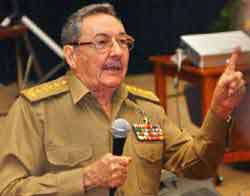
Last Friday I went to BBC Radio 4’s “Any Questions” that was being broadcast from Swindon. What a curious and frustrating evening!
There were about 150 people in the audience, and I recognised well informed and articulate activists from the World Development Movement, the anti war campaigns, animal welfare activists and anti—ID card campaigners.. Indeed the warm up debate for 30 minutes before we went on air was lively and interesting.
During this warm up the new editor of the Today programme fielded questions. There were a number of probing and thoughtful questions, and the debate was engaging and passionate. I asked why the BBC had referred to the capture of Israeli soldiers as “kidnapping” whereas the seizure of almost the entire Palestinian government by the Israelis was described as “seizure”. He admitted that the BBC had been wrong. An Asian man asked why the BBC referred to legitimate political movements such as Hamas and Hezbollah as terrorists, and life long “Small is beautiful” activist,
John Papworth, asked why the BBC news concentrated on trivia, while the big issue like the war and global warming were sidelined. What a prophetic question!
The panel was: Sir Max Hastings: right wing journo; Jackie Ballard, Director General of the RSPCA, and former Lib Dem MP; Roger Scruton, neo-liberal philosopher and local boy; and Colin Blakemore, Chief Executive of the Medical Research Council.
The first question set the tone, that even on issues of war and peace, the BBC were taking a whimsical tone. “if Bush and Blair were being considered for sainthood, how would you rate them on a scale of 1 to 100”. That was as close to politics that we got all evening, and did give Max Hastings the opportunity for a passionate attack on Blair, Bush and the Iraq war.
But then it all went downhill. Jackie Ballard is barely sentient, and I have had pets more capable of insightful comment. Colin Blackmore was very well informed about the issue of animal experimentation, but had no real opinions on any other subject, and Roger Scruton was able to hide the depth of his libertarian politics behind the country gent, "law and order" persona he projects.
There were a number of problems. Firstly, despite the fact we know that several questions were submitted about Iraq, Lebanon, the labour party leadership, the fate of Cuba after Fidel, and other topical issues, the producers blocked all of those in favour of questions like: “what brings culture to a town”, and “Have clever clogs gone to the dogs”, or “has feminism done away with real men”
There were indeed questions about animal rights and ID cards, but everyone on the panel agreed with each other on animal rights, and despite being director of the RSPCA Jackie Ballard had clearly never thought about the issue. On ID cards, they were all in principle in favour, but none of them had strong opinions. This is very poor research on half of the BBC, picking questions that the panel were not able to truly debate.
The questions were also a complete stitch up. Although hundreds of questions were submitted, the first question about Blair’s sainthood was from someone clearly on first name terms with the local BBC, and two questions went to Matt Holland, a local self publicist, one of which he passed to his daughter. A local poet, Tony Hillier, told me his question had been given to him by the producers. Afterwards there was a lot of dissatisfaction from audience members that no serious issues had been discussed. What a stitch up.
There was also a problem in there being no politicians on the panel, so Roger Scruton was able to make racist remarks about immigrants during the question on culture, and outrageous comments about what women "really want" (to stay at home and be supported by their husbands apparently), as answer to a question on feminism, and yet no-one challenged him.
The other problem is that Any Questions follows the “Brain’s Trust” format, that the panel are experts and the audience are there to listen in awe at their wisdom. This meant there was no way of challenging the consensus of the panel, or bringing out the breadth of opinion over for example ID cars or animal rights that exists.
The Brain’s Trust was an phenomenon of the 1940s when they really did have the intellectuals of the day on the radio to debate, and the audience was much less educated. It would be hard to imagine that the BBC could find an audience less well informed or educated than Jackie Ballard anywhere in the world, unless they bought it from a garden centre. It also requires some genuine desire to debate, not just be pleased with the sound of your own voice. Roger Scruton for example is an intelligent and controversial figure, but he needs to be counterbalanced with someone who will take on his neo-liberal arguments.
Everything about the programme was second rate, they even had the B list Dimbelby to host it! It reflects the BBC's conception of democracy, where the great and the good pontificate, and the majority of the population are just there to clap.









